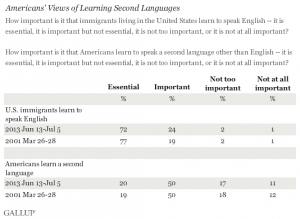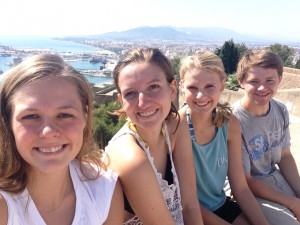When I think of a voluntary internship, I automatically notice the negative stigma that surrounds the concept, which I believe is triggered by either an inherent or capitalistic viewpoint that workers deserve wages, but after letting the initial feeling settle, I have found that the wealth one receives from work is not just monetary. Before I begin to divulge the personal benefits that I received, I do want to make a quick point from an investment standpoint.
For a person to live comfortably and pay his or her expenses, one must be employable or entrepreneurial; without one of those traits, a person will struggle to make ends meet financially. Thus, any experience that betters those attributes has a direct effect on the amount of income a person will make over his or her life. This perspective contributes to people’s decisions to attend universities and graduate programs, and many students spend tremendous sums of money for a college education. Statistically, graduates with a bachelor’s degree between the ages of 25-34 make 150% the median income of workers with only a high school diploma (National Center for Education Statistics 2011). Besides the obvious increase in salary, college students have the opportunity to learn how to think critically, develop their interpersonal and professional communication skills, establish a network of professionals, peers, and mentors, and personalize their experience with involvements in student organizations, semesters abroad, internships, and other opportunities. As such, I view an internship on a similar level as a college education, but in order to make what I believe to be a better point, I will compare a student completing a voluntary internship to a student doing research with a professor.
While some students have the good fortune of being offered a job to do research for a professor, others ask to research alongside a professor on a voluntary basis in order to increase their understanding of the field or because they want to publish. The emphasis on learning trumps the need for financial compensation, and from the experience, the students gain the ability to conduct research academically, more effective writing skills, and a deeper understanding of their chosen subject. The wealth of skills gained from the work should not be taken lightly, and from my perspective, I see them as adequate compensation for the work they perform. Although the professor and the university might receive financial or reputational benefits from the research, these indirect rewards from the student’s work could be taken as the cost of the apprenticeship. In the same light as students paying tuition to learn in the classroom, the fruits of their research could be viewed as the price they pay for all they knowledge and skills they acquire while working under a professor.
Now, as for what sparked my interest in the subject of voluntary internships, I interned at Silverman Sherliker Solicitors in London during my spring semester, and from my experience, I personally witnessed the various outcomes that can be gained from a voluntary internship. Before my first day, I was unsure of what to expect. I had never traveled internationally, yet I decided to go for five months to study and work. Besides expecting to gain a better appreciation and understanding of different cultures, I did not know what else I could reasonably anticipate. After six weeks of working in London, I had already noticed tremendous growth within myself. While I find it difficult to place on paper all that I have gained from my internship, I believe that I can show some of its value by recounting the various assignments that I undertook. Creating a weekly journal of significant moments during my internship has helped me critically reflect on my time with Silverman Sherliker especially when attempting to evaluate the learning outcomes.
While a comparison of my starting point to my ending point might provide a better academic model, I will analyze my internship from a teleological perspective because I believe it to be more fruitful in respect of learning outcomes. My first day, I immediately entered into an uncomfortable environment and was surprised by the organization’s response. When I arrived for my first day of work, I was greeted cordially by the receptionist; however, when I told her that I was there to begin my first day of my internship, she was unaware that anyone was starting that day. After about an hour, I was shown to the department where I would be working for the next twelve weeks, but the confusion showed me that no matter how clear I have communicated with someone, there are always unforeseen events that might arise. I also realized that it is important not to react impulsively in the workplace and that maintaining composure is a great trait to possess. Despite the initial surprise, the rest of my day went much more smoothly.
My first day I only accomplished four tasks, and as I reflect on my journal that day, I feel like it is almost laughable because by the end of my internship, I could have finished all those tasks in less than two hours. Such a drastic change in efficiency reveals that experience matters, and it also points to my strategic thinking style and my Belbin’s team role of resource investigator because over time, I looked for and found ways to accomplish more. As a research investigator, I responded to the challenge of embracing the new culture around me and took a studious approach to my job in order to find ways to better the work that I was producing. I improved greatly during my employment because I was able to find ways to solve the challenges that I faced and did not allow an obstacle to get the best of me. I learned to research solutions and complete projects by myself; while my boss was right next to me, he was inundated with work, so I found it best to be able to apply my past experiences and not bother him with a deluge of questions.
During the first few weeks, I did a lot of copying, couriering, acting as a receptionist, researching legal rules for my boss, and chasing information from the court or our clients. While I was happy to do those tasks, evaluating them shows me that they were all fairly administrative in nature; however, I actually learned a decent amount from them because I would always look for ways to make more out of those activities. For instance, I analyzed and read what I copied, and serving as a receptionist and communicating with the courts and clients helped me practice my professionalism and communication skills. The legal research gave me insight into what the British Civil Procedure rules looked like, but I discovered later that my boss could do that task in five minutes. From his example, I also greatly shortened the time it took me, and as a result, I was able to use my research and apply it to cases.
Improvement as an intern is the key to a quality experience. This lesson was critical for me; when I improved my ability to complete tasks, I was given more legitimate assignments. I moved from the mundane work to the real work that my boss was doing, and from it, I started to really understand British Civil Procedure. I would never have been able to learn as much as I did and complete all the projects that I was given if it were not for my improvement during my twelve weeks there.
After finding an opportunity, I made sure to capitalize on it, which revealed to me the other tool necessary for making the most of a voluntary internship. At the beginning, I did not have many chances to stand out or prove my abilities to my boss, so I actively looked for ways to prove my worth and set myself apart from other interns. My window of opportunity presented itself when I saw my boss stressing about his workload, so I offered my assistance and began working on the disclosure stage for two separate cases. After three full days of working on it, I amassed an index of documents and a summary for the 2500 page case. While it was an overwhelming task, I was able to complete it by the deadline and show my boss that I was up for the challenge. After that week, I noticed a drastic change in the amount of quality work that I was given, and I know the change was directly related to seizing the opportunity that was in front of me.
Making the most of an opportunity and improving each week are the two lessons that will always stay with me from my internship. By following these two lessons, I gained so much more insight into the British legal system, and I will continue to follow them throughout my career. In conclusion, I would like to reconnect my personal experience with that of a student doing research for a professor. As can be seen by my experience, I improved greatly from it. I am now a stronger writer, a more effective communicator, a more efficient and skilled researcher, a student of both the American and British legal systems, and a more experienced global worker. In addition, I had the opportunity to observe solicitors interact with clients and see how legal professionals approached their work each day, and from my experience, I am even more confident that I want to attend law school after graduating from the University of Louisville. While it would have been nice to be paid for the tasks that I performed, the skills and knowledge I received are much more important to me, and I see them as adequate compensation for my time at Silverman Sherliker.








![IMG_1080[1]](http://business.louisville.edu/blog/wp-content/uploads/IMG_10801-e1401558147284-225x300.jpg)



